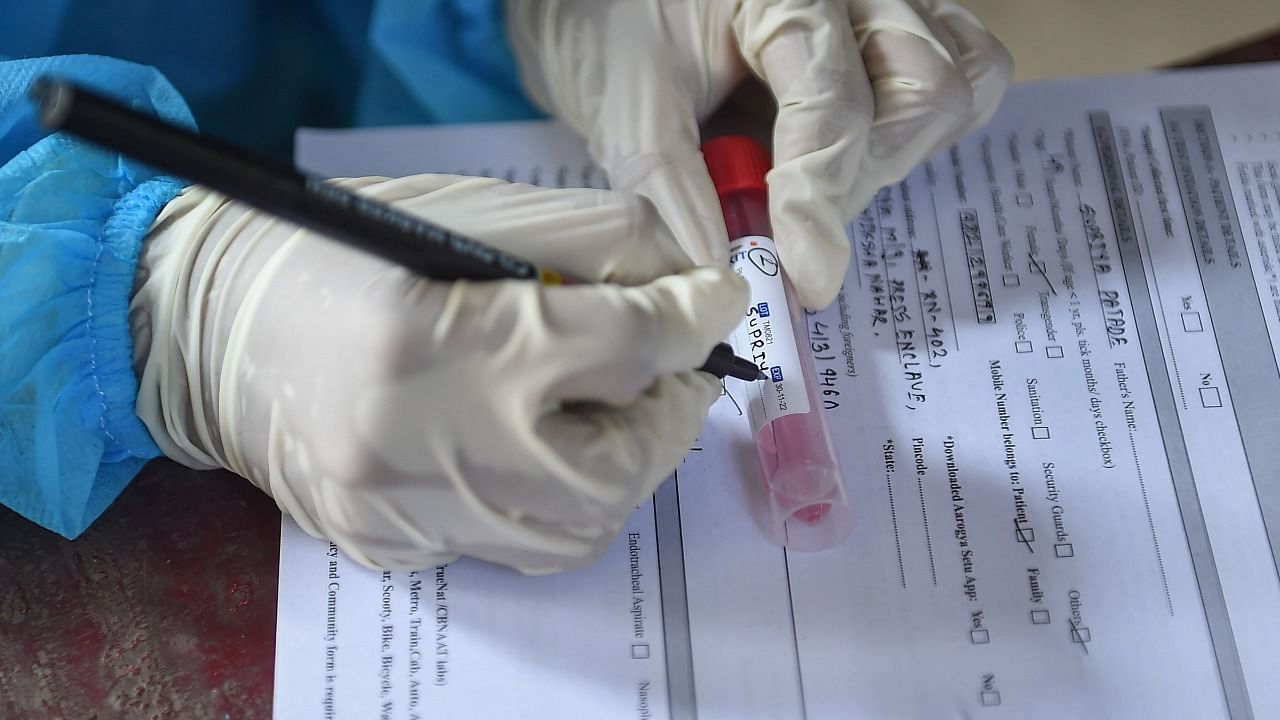
The Karnataka health department sounded a note of caution on Tuesday after its genomic surveillance machinery discovered that two people had been infected with the AY.4.2 sub-lineage of the novel coronavirus weeks before.
The discovery prompted Dr K Sudhakar, Health Minister, to speak to members of the Technical Advisory Committee (TAC) on Tuesday about potential contingency measures, a source said. “He has sought their opinion on the matter and will be briefing the chief minister on the matter tonight,” the source said.
This sub-lineage of the Delta variant, which is rising in prevalence in the United Kingdom (UK), was described by technical experts in that country as having a growth rate of 17% compared to the baseline Delta variant and a secondary household contacts attack rate of 12.4%, as opposed to 11.1% for Delta. Out of 23,407 sequences identified in the world, 21,848 are from the UK.
Both the cases found in Karnataka are from Bengaluru. One is a 43-year-old man who had been infected with the virus as early as on July 7 and the second is a 23-year-old man whose swab samples had been collected on July 17. Both cases were found as the state retroactively tests old samples for this new version of the virus.
Nevertheless, Dr C N Manjunath, a member of the State Covid-19 Task Force, said that the discovery of this new sub-lineage did not change anything. “It continues to be a Delta variant. As we already know, about 80% of all cases on the second wave were due to Delta and therefore, this is a variant that largely cannot do greater damage to us, although it is causing some damage in Europe, but only because those countries are enduring Delta for the first time,” he said.
According to the top health official in the Bruhat Bengaluru Mahanagara Palike (BBMP), the samples have been sent to the National Centre for Biological Sciences (TIFR-NCBS) for verification. “But there is no need to push the panic button on these two cases,” said Dr Thrilok Chandra, Special Commissioner (Health). “For one, we have followed up on the two cases. Both were asymptomatic and the primary contacts are also asymptomatic.”
Re-verification is important because at least one genomic scientist disputed the discovery of the AY.4.2 in India. “A check suggests none of the sequences meets Public Health England’s (PHE) criteria for AY.4.2. The 17 sequences found in India have only one or none of the three mutations they are supposed to have,” the expert said.
The scientist added that misclassifications happen because of problems in the Pango software, which is used worldwide to classify Covid-19 lineages.
Third wave concern
Even if this discovery of AY.4.2 turns out to be premature, Dr Manjunath noted that the population should not be complacent. “As per the pattern of prevalence, a third wave will happen but we do not know when it will happen,” he said, adding that the task force was concerned about large public gatherings taking place in the state, especially political rallies and conventions.
Meanwhile, the Principal Secretary of Health and Family Welfare, T K Anil Kumar, said that the matter would be further discussed at a Technical Advisory Committee (TAC) meeting scheduled for Thursday.
Check out latest coronavirus-related videos from DH: